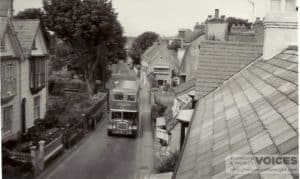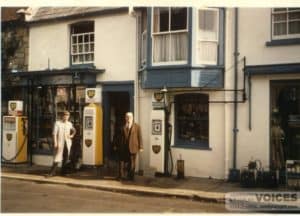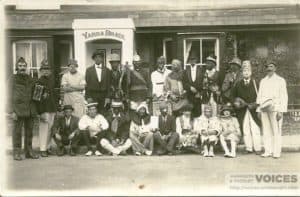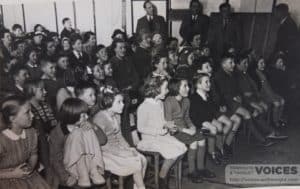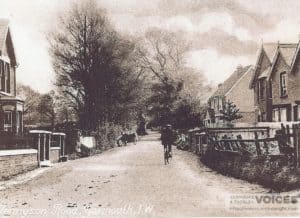Now my Uncle Ted as a young man was the ‘leader of the band’ of mostly builders who used to run with this handcart if anywhere was on fire. The handcart was kept in the Town Hall; they didn’t even have a horse. It must have been a very slow turn-out – to go round gathering the men in to run with the handcart. The handcart brigade would deal with anything round the town.
Just before the war they decided that Yarmouth would have to have an Auxiliary Fire Service team and Ted got ousted because it was all made up of Bucketts. Ted went off in a fit of pique and joined the Home Guard. In the war it became National Fire Service from Auxiliary, and after the war they were put back to the local Councils and then became the Isle of Wight Fire Service. When I joined, the original Fire Chief for the Island, Sullivan, was still there and how many Chiefs did I see? – dozens. Rod Corbett b 1943



